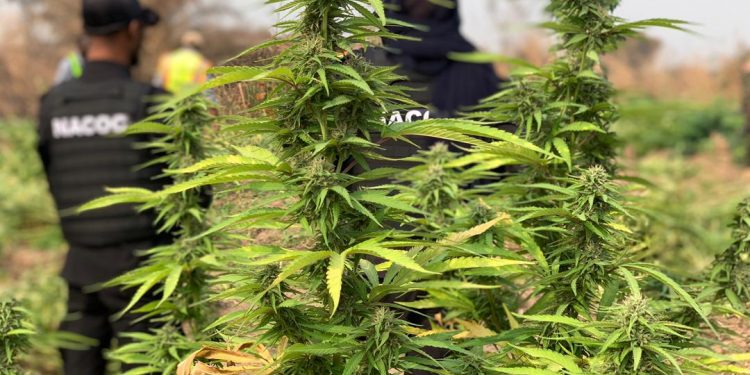The Supreme Court of Ghana has reaffirmed its decision that a section of the Narcotic Control Commission Act, 2020 (Act 1019) allowing for the cultivation of cannabis in the country is unconstitutional. In a majority ruling of 5-4, the court stated that the law was unlawfully passed by Parliament.
The majority justices, including Justices Jones Dotse, Prof Kotey, Mariama Owusu, Prof Henrietta Mensah Bonsu, and Emmanuel Kulendi, held that the requirements for a party to review its own judgement had not been met.
This recent ruling follows a previous decision by the Supreme Court in July 2022, which struck out Section 43 of the Narcotics Control Commission Act. The court concluded that the section, which permitted the cultivation of cannabis with less than 0.3% THC content for industrial and medicinal purposes, violated Article 106 of the 1992 Constitution. This article outlines the processes a bill must undergo before becoming law and, therefore, rendered the section null and void.
According to a report from myjoyonline, a private citizen named Ezuame Mannan, who filed the case against the Attorney-General, argued that the explanatory memorandum presented in Parliament did not adequately disclose the policy change brought by the law. The Supreme Court agreed, noting that the policy change had not been sufficiently debated before the law’s passage.
The Attorney General, represented by Godfred Dame, filed a request for a review of the court’s decision, contending that the original panel of judges had erred in supporting the complainant.
However, during the proceedings, Ezuame Mannan’s lawyer, Effiba Amihere, argued that no miscarriage of justice had occurred and that the amendment in question had been introduced without proper public awareness or debate.
After considering the arguments, Justice Jones Dotse, the presiding judge, ruled that the threshold for a review had not been met, thus upholding the court’s previous decision that the law remains unconstitutional.
Section 43 of Act 1019, which was struck down, permitted the Minister, based on the recommendation of the Commission, to grant licenses for the cultivation of cannabis with a THC content of not more than 0.3% for industrial purposes and obtaining fiber or seed for medicinal use.
The court’s ruling is based on the provisions outlined in Article 106 of the 1992 Constitution, which requires bills to be accompanied by an explanatory memorandum, published in the Gazette at least 14 days before introduction to Parliament, and undergo full debate and committee review before passage.


















































